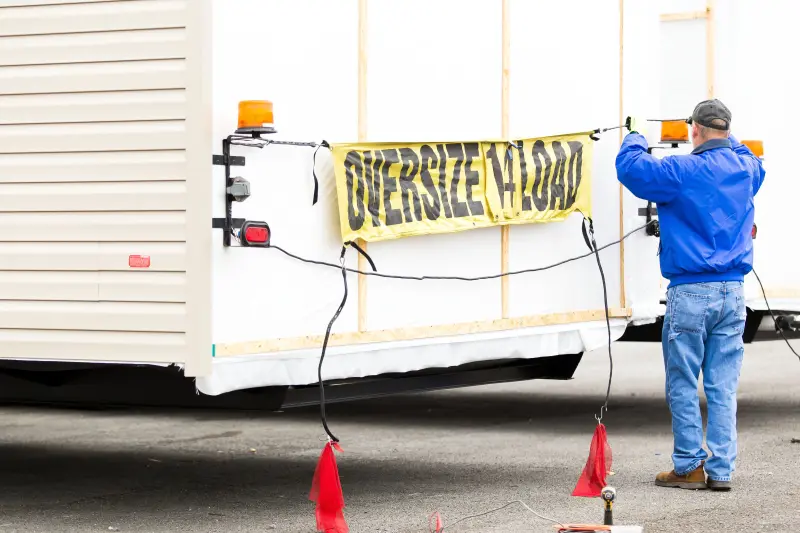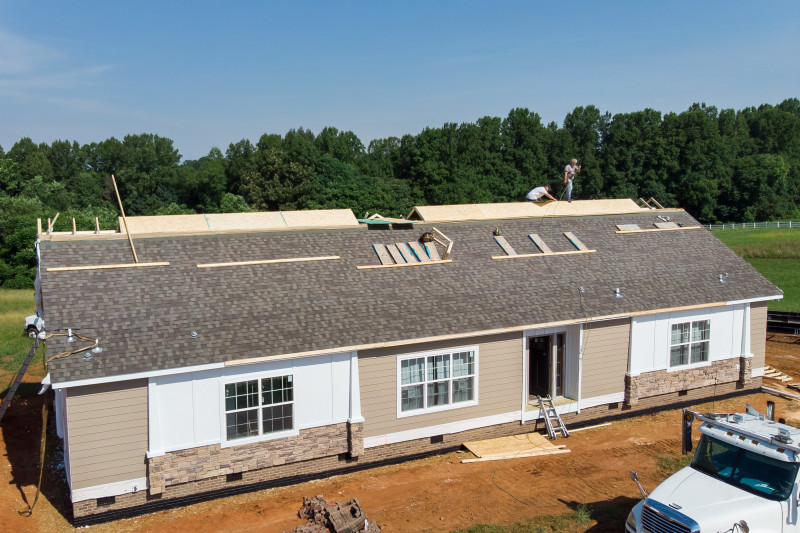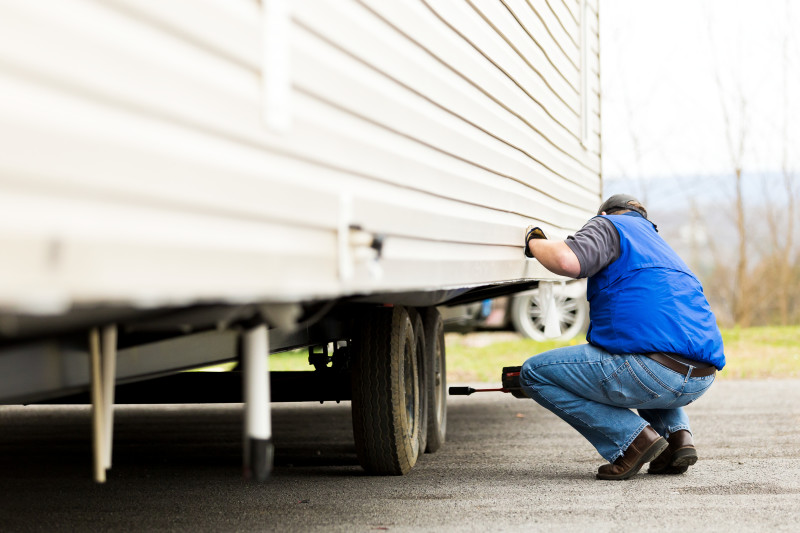The Relocation Process for Your Clayton Built® Home

Are manufactured homes movable? Yes, and you can learn all about relocating your manufactured home and important considerations before moving.
If you know that one of the perks of manufactured homes is the freedom that comes along with them. Not only are they an affordable and quality housing option, they may also allow homeowners to relocate without having to leave the home of their dreams behind.
The National Mobile Home Construction and Safety Standards Act passed in 1974 and went into effect in 1976. All Clayton Built® homes constructed after the Act went into effect are built to HUD Code requirements.
Homes with a HUD certification label are built to certain construction and safety standards. You might be thinking, “So, can I move my manufactured home?” Well, this is dependent on a few different factors, including cost. You’ll need professional home movers with experience relocating manufactured homes to help you decide if you can and should move your home.
Here are some things to consider before deciding to move your home:
Can My Home Handle the Move?
What kind of shape is your home in? Some manufactured homes that were built prior to 1976 may not be able to withstand a move. The moving company you choose to move the home will let you know if the home can be moved. Wheels and other standard equipment may be necessary to make the home moveable. If you plan to move your home, talk to a professional manufactured home transportation company about what equipment will be needed to move your home.
Consider Legal Implications Surrounding the Move
It’s important when considering a move that you look into things like local zoning laws, wind zone requirements and city planning.
For example, if your home was built to wind zone 1 requirements, it can’t be moved to regions that have higher wind zone requirements, such as wind zones 2 or 3 where hurricane level winds are more likely. This is mandated by federal standards. If you do relocate your home, the local code officials in your new destination will verify that your home’s installation and construction complies with federal and local standards for construction and installation.
There are also towns that have land use laws that do not allow manufactured homes that are over a certain age, so make sure to check zoning requirements of the new location before moving the home.

Consider the Size of Your Home
Typical size differences between single and multi-section homes:
- Single section homes range in size from 14’x56’to 18’x80’ or 784 sq. ft. to 1,440 sq. ft.
- Double section homes range in size from 24’x56’ to 32’x76’ or 1,344 sq. ft. to 2,432 sq. ft.
- Triple section homes range in size from 36’x56’ to 45’x66’ or 2,016 sq. ft. to 2,970 sq. ft.
If your home is larger than a single section, it will probably not be possible to move it in one piece. Because of the large size of a double or triple section home, they typically cannot be transported without separating the home into sections. Attempting to move a multi section home as one unit is dangerous for both the home and other drivers on the road.
Don’t worry though. Just because your home is larger than a single section doesn’t mean it’s impossible to move. It can be done by hiring movers that are skilled and trustworthy. The movers will inspect your home, remove the skirting and then split the home into two or three sections as it was manufactured. Professional movers are familiar with the laws in each state for moving a home and should acquire the necessary transportation permits.
Once your home is separated, it will be lifted by a crane onto a trailer and fastened safely and securely for transport. When your home arrives at its new location, it will be lifted off the trailer with a crane and installed.

Is it Cost Effective to Relocate Your Home?
it is very important to think about whether or not it’s a cost-effective decision to move your home.
When it comes to relocation, there are lots of cost factors to consider. Things like labor, repairs, permits, land, utilities and foundation changes are often overlooked, but can add up quickly in the moving process.
The cost to relocate your home varies greatly based on factors such as the company you hire to move your home, as well as where you live and the distance of the move. Typically, you can expect the cost to relocate your Clayton Built® home to fall between an estimate of $2,500 and $10,000, depending on the size and number of sections your home features, though the cost may be higher.* These costs can include grade work, footers, electric, plumbing, the move and having the home set up at its new location. The costs of a move can vary greatly depending on multiple factors. Check with the relocation company you choose to use on what it would cost for your home, and what all the cost will cover.
*These figures represent an estimate based on our own experience with relocation companies. Actual relocation costs will vary. Contact your local relocation professional to obtain an estimate for your home.

Finding and Hiring Movers You Trust
Finding reputable professionals in the area who provide excellent service and can move your manufactured home correctly and safely is important. You should never move a manufactured home yourself, because it’s a complex project that requires professionals.
It’s important to check a few things off your list when hiring movers:
- Look for a company that knows how to move your type of home and can provide examples of their experience
- Shop around and get multiple quotes to ensure you’re getting a fair price
- ALWAYS be sure that the company is licensed and insured
You’ll want to reach out to your transport company for the details on what the process will look like for your home. Typically, you can expect the transportation company you choose to:
- Inspect the home to determine if it can be transported
- Usually get the permits needed to move the home
- Disconnect plumbing and other utilities prior to moving the home
As you can see, there are lots of things to consider when you’re thinking of relocating your Clayton Built® home. Be sure to weigh the options to decide if relocation or a manufactured home trade-in is right for you and your home!
Are you ready to find your dream home?
Start shopping now or find a home center in your area to learn more about Clayton Built® home options.By entering your email address, you agree to receive marketing emails from Clayton. Unsubscribe anytime.
© 1998-2025 Clayton.

